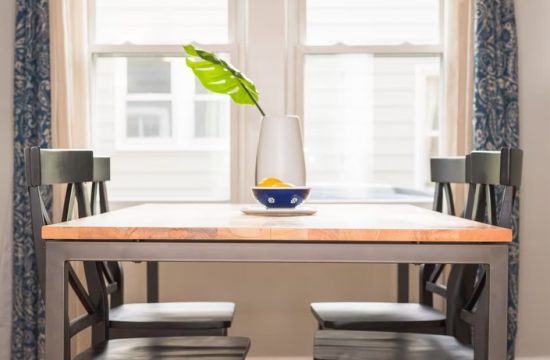Marble is a natural stone material with best quality and luxury. Not surprisingly, marble is widely used in various rooms in the house such as the floor of the house, bathroom walls, and kitchen countertops. However, in recent years, marble has more casual decorating styles. In fact, marble can be mixed with other organic materials such as wood for a timeless feel.
Although non-porous, marble is a natural stone that can still be scratched or scuffed. Therefore, it is important to carry out regular cleaning and maintenance to keep the marble looks good. For kitchen countertops with marble material, they must be cleaned as needed at least once a day or after cooking, depending on the use. So, how to clean a marble kitchen countertop?
Marble is known to be quite complicated to maintain and using acid cleaning agents is the biggest prohibition to avoid. To clean it, you should use mild soap and water regularly. If using a spray cleaner for kitchen countertops, avoid disinfectants, which are often too harsh. It’s best to choose all-purpose cleaner that is organic and works gentle enough on marble.
Marble has known to be quite complicated to maintain and using acid cleaning agents is the biggest prohibition to avoid. To clean it, it is necessary to use mild soap and water regularly. If using a spray cleaner for kitchen countertops, avoid disinfectants, which are often too harsh. It’s best to choose an all-purpose cleaner that is organic and works gentle enough on marble.
Dip a clean cloth in the soap and water, then wipe the marble countertop thoroughly. Wipe off dirt, food residue, and oil stains until they are completely gone. You can use a microfiber cloth for this cleaning. Repeat cleaning as needed or after showering.
Sometimes, deeper dirt or stains can damage the marble. However, if you clean regularly, you can avoid deep stains and scratches. Most stains can be removed with household products and cleaners. For oil-based stains, use detergent, mineral oil, or acetate to remove the stain, then wipe with a cloth. For organic stains from food, wine, or other sources, use 12 percent peroxide bleach (hair bleaching power) and a drop of ammonia. These stains will likely not show up on darker marble, but bleach and peroxide can discolor them. For stuck-on dirt, such as spilled food or paint, try removing it gently with a knife or a flat scraper.
Spilled acidic chemicals can actually damage marble and leave stains. If the marble countertop has scratches or dull spots, you can try polishing it with #0000 steel wool. However, if the scratch is too deep, you may have to ask a professional to sand it down. When in doubt, check with the manufacturer or company you purchased from.
–sh












